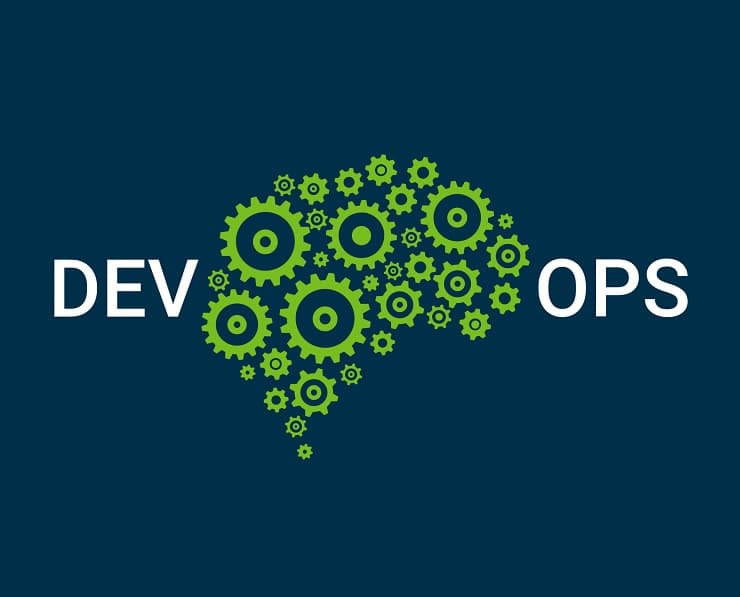Student Feedback
AWS Certified DevOps Engineer - Professional DOP-C02 Certification Video Training Course Outline
Course Overview - AWS Certified ...
Domain 1: SDLC Automation
Domain 2: Configuration Manageme...
Domain 3: Resilient Cloud Solutions
Domain 4: Monitoring and Logging
Domain 5: Incident and Event Res...
Domain 6: Security and Compliance
Other Services
Course Wrap-Up
Course Overview - AWS Certified DevOps Engineer Professional
AWS Certified DevOps Engineer - Professional DOP-C02 Certification Video Training Course Info
AWS Certified DevOps Engineer Professional (DOP-C02) Exam Prep Course
Master the AWS Certified DevOps Engineer Professional (DOP-C02) Exam with 20 Hours of Expert-Led Advanced Video Training – Bestseller
What You Will Learn From This Course
• Pass the AWS Certified DevOps Engineer Professional Certification (DOP-C02) with confidence and ease
• Design and implement advanced automation workflows across multiple AWS services
• Perform real-world DevOps operations to gain practical and hands-on expertise
• Learn AWS DevOps through structured projects and guided scenarios
• Build a strong understanding of AWS CI/CD pipelines, infrastructure as code, and monitoring techniques
• Access all course slides as a downloadable PDF for convenient offline learning
• Prepare for real-world AWS DevOps roles while mastering the DOP-C02 exam blueprint
Learning Objectives
The main goal of this course is to equip learners with the technical knowledge and practical skills required to achieve the AWS Certified DevOps Engineer Professional certification. By the end of this training, students will have a complete understanding of advanced AWS services, automation tools, and DevOps best practices used by cloud engineers in production environments. You will gain hands-on experience with key AWS DevOps services, enabling you to confidently manage cloud infrastructure and deliver automated solutions. The course provides a logical progression of topics, ensuring you build a strong foundation before advancing to complex concepts. Learners will be able to create continuous integration and continuous deployment pipelines, manage infrastructure using code, implement security controls, and monitor cloud operations effectively. The objective is not only to pass the exam but also to help you develop real-world AWS DevOps skills that can be applied immediately in professional environments.
Target Audience
This course is designed for experienced AWS professionals who are looking to advance their careers in cloud computing and DevOps engineering. It is ideal for cloud engineers, system administrators, and developers who already have hands-on experience with AWS and want to master automation, continuous delivery, and operational best practices. If you are an AWS Certified Developer Associate or AWS Certified SysOps Administrator aiming to take the next step toward a professional-level certification, this course is the perfect fit. It is also valuable for IT professionals seeking to specialize in DevOps practices and cloud automation, as well as teams responsible for managing large-scale AWS deployments. Anyone who wants to gain deep technical knowledge of AWS services such as CloudFormation, Elastic Beanstalk, CodePipeline, CodeBuild, CloudWatch, and more will greatly benefit from this training.
Requirements
To get the most out of this course, it is recommended that learners possess prior experience working with AWS cloud services. A solid understanding of core AWS concepts, networking, and security will ensure a smoother learning journey. Familiarity with automation tools, scripting, and deployment practices will also be helpful. This course assumes that students already have practical exposure to managing AWS environments and are ready to tackle advanced DevOps challenges. The content is fast-paced and designed for those who have at least a working knowledge of cloud infrastructure.
Prerequisites
Before enrolling in this course, you should hold at least one AWS Associate-level certification, such as AWS Certified Developer Associate or AWS Certified SysOps Administrator. These certifications provide a foundational understanding of AWS services that will be critical when moving into more complex topics. While not mandatory, having both certifications is highly recommended for the best learning experience. It is also beneficial to have one to two years of hands-on AWS experience, including tasks such as deploying applications, managing resources, and configuring security settings. Familiarity with Linux commands, programming or scripting basics, and DevOps tools such as Git or Jenkins will further enhance your ability to grasp the course material quickly.
Course Overview
The AWS Certified DevOps Engineer Professional (DOP-C02) exam is one of the most challenging and rewarding certifications offered by AWS. This course is carefully structured to provide complete coverage of the exam objectives while teaching practical DevOps techniques for real-world use cases. You will explore advanced topics such as infrastructure automation, monitoring and logging, continuous delivery, and high-availability deployments. Each section is designed to build upon the previous one, giving you a clear and organized path to mastery. With over 20 hours of high-quality video content, this training focuses on delivering practical demonstrations and detailed explanations rather than just theoretical knowledge.
Course Highlights
This course provides in-depth instruction on how to create automation workflows using key AWS services. You will learn to design CI/CD pipelines using services like AWS CodePipeline, CodeBuild, and CodeDeploy, enabling seamless application updates and deployments. Topics include managing infrastructure as code with AWS CloudFormation and Terraform, implementing monitoring solutions with Amazon CloudWatch and AWS X-Ray, and setting up logging mechanisms for better operational insights. The course also covers strategies for maintaining high availability, scaling applications, and securing cloud environments. By mastering these skills, you will be able to handle real-world DevOps tasks and pass the DOP-C02 exam with confidence.
Course Features
Enrolling in this course grants you lifetime access to all video lectures, downloadable resources, and future updates as AWS evolves. You will also receive a certificate of completion to showcase your achievement and strengthen your professional portfolio. A responsive instructor is available to answer your questions and provide guidance throughout your learning journey. With a 30-day money-back guarantee, you can join the course risk-free and start preparing for your AWS DevOps certification today. This course combines high-quality instruction with practical exercises, ensuring you gain both the knowledge and hands-on experience required to succeed.
Course Modules / Sections
The AWS Certified DevOps Engineer Professional course is structured into carefully designed modules that ensure learners build a strong foundation before moving into advanced DevOps concepts. Each module is interconnected, following a logical progression to help students gain both exam-level expertise and real-world skills. The first set of modules introduces learners to the core principles of DevOps and AWS services, ensuring they understand the essential tools and workflows. Subsequent modules gradually expand into automation, deployment, monitoring, and scaling. By following this structured learning approach, students are guided from foundational understanding to advanced mastery.
The course begins with an introductory module that provides an overview of the AWS DevOps Engineer Professional certification exam and its objectives. It explains the structure of the DOP-C02 exam, the domains tested, and the scoring process. This module helps learners understand what to expect and how to align their preparation with the requirements of the certification.
The next module focuses on the foundational concepts of DevOps within the AWS ecosystem. Here, learners are introduced to the key principles of DevOps, including automation, continuous integration, continuous delivery, monitoring, and collaboration. This section establishes the groundwork for more advanced topics by ensuring that students understand the philosophy behind DevOps practices and how AWS supports them.
Following this, the modules transition into practical AWS services that are critical for DevOps engineers. Students explore core services such as Elastic Beanstalk, CloudFormation, CodePipeline, CodeBuild, and CodeDeploy. Each service is explained in detail, with demonstrations on how to configure, implement, and optimize it in a real AWS environment. Learners build hands-on experience by creating automation workflows and CI/CD pipelines.
Another set of modules is dedicated to monitoring and logging, which are essential for maintaining reliable and scalable applications. Students learn to use Amazon CloudWatch, AWS X-Ray, and CloudTrail to track performance, detect anomalies, and implement alerting mechanisms. These sections highlight how monitoring tools integrate with DevOps pipelines to create feedback loops that improve application quality and reliability.
The course then shifts to advanced deployment strategies and automation techniques. Students explore blue/green deployments, canary releases, and rolling updates. These modules emphasize how to minimize downtime, reduce risks, and ensure continuous delivery of applications in production environments. Infrastructure as code concepts are introduced in greater depth, with demonstrations on using CloudFormation templates and Terraform scripts for scalable infrastructure provisioning.
Security and compliance form another critical module, ensuring learners understand how to safeguard AWS environments. Topics include identity and access management, secrets management, encryption, and compliance monitoring. By mastering these concepts, students learn how to design DevOps pipelines that prioritize security without slowing down development cycles.
The final modules prepare learners for real-world applications of AWS DevOps. This includes case studies, advanced troubleshooting techniques, and performance optimization strategies. Students also receive exam preparation tips, practice questions, and a comprehensive review of all domains covered in the certification. The modular approach ensures that by the time learners complete the course, they have mastered every aspect of AWS DevOps engineering.
Key Topics Covered
The course covers an extensive range of topics, carefully aligned with the AWS Certified DevOps Engineer Professional exam blueprint. These topics are designed not only to prepare students for certification but also to equip them with practical knowledge for real-world applications.
One of the central topics is continuous integration and continuous delivery (CI/CD). Students learn how to automate the software development lifecycle using AWS services such as CodePipeline, CodeBuild, and CodeDeploy. They gain expertise in configuring pipelines, building applications, deploying them seamlessly, and monitoring results. This ensures learners understand how to maintain speed and reliability in modern software delivery processes.
Infrastructure as code is another critical topic, covering AWS CloudFormation and third-party tools like Terraform. Learners explore how to design reusable templates, manage versioned infrastructure, and deploy scalable resources automatically. The course emphasizes the importance of automation in infrastructure management to ensure consistency and efficiency.
Monitoring, logging, and observability are also major areas of focus. Students work with CloudWatch to set up alarms, dashboards, and metrics, while AWS X-Ray provides visibility into application performance. Logging with CloudTrail ensures auditability and accountability across AWS environments. These topics highlight how monitoring contributes to operational excellence and proactive problem resolution.
The course includes detailed coverage of deployment strategies, such as blue/green deployments, rolling updates, and canary releases. Learners understand when to use each method, the risks involved, and how AWS services support these strategies. This equips students to minimize downtime and errors during deployments in production systems.
Automation using AWS Lambda and other serverless technologies is explored in depth. Students discover how to create event-driven workflows, automate routine tasks, and integrate serverless components into DevOps pipelines. The course demonstrates how automation can reduce manual intervention and increase efficiency.
Security and compliance are emphasized throughout the course. Key topics include IAM roles and policies, secrets management, key management with KMS, and encryption techniques. Learners also study compliance frameworks and tools that help ensure AWS environments meet regulatory requirements. By mastering these concepts, students become proficient in securing cloud applications and infrastructure.
High availability, fault tolerance, and scaling strategies are also included. Students gain knowledge of load balancing, auto scaling groups, multi-region deployments, and disaster recovery techniques. These topics ensure learners can design systems that remain resilient and available under different conditions.
Additional key topics include containerization with Amazon ECS and EKS, integration of DevOps practices with microservices, cost optimization, and troubleshooting. The breadth of these topics ensures students are fully prepared for both the exam and real-world AWS DevOps responsibilities.
Teaching Methodology
The teaching methodology of this course is designed to balance theory with practical application, ensuring learners can immediately apply what they learn. The course is structured in a way that avoids overwhelming students, instead building knowledge progressively from foundational concepts to advanced techniques.
The primary method of teaching is through high-quality video lectures that provide step-by-step explanations of key AWS services and DevOps practices. Each lecture is concise, focused, and designed to cover one concept at a time. Visual aids such as slides and diagrams support explanations, making complex topics easier to understand.
Hands-on demonstrations form the core of the learning experience. Rather than just explaining theory, the instructor shows learners how to configure AWS services, build automation workflows, and implement DevOps solutions. Students are encouraged to follow along in their own AWS accounts, reinforcing learning through practice.
To ensure retention, the course integrates practical projects where students apply multiple concepts together. For example, learners may be tasked with building a complete CI/CD pipeline or deploying a secure multi-tier application using infrastructure as code. These projects simulate real-world challenges and help learners build confidence in their abilities.
The teaching methodology also emphasizes clarity and logical progression. Each section begins with an overview of what will be covered, followed by detailed explanations and demonstrations, and concludes with a recap of key takeaways. This structure ensures learners stay engaged and retain the material effectively.
The instructor uses a fast-paced but clear teaching style, eliminating unnecessary repetition while ensuring important points are emphasized. The methodology combines lectures, demonstrations, exercises, and downloadable resources to cater to different learning preferences. This holistic approach ensures that students are not only prepared for the certification exam but also capable of applying their knowledge in professional environments.
Assessment & Evaluation
Assessment and evaluation are integral parts of the course, designed to measure learner progress and ensure mastery of the material. The assessments are not limited to exam-style practice questions but also include hands-on exercises that test practical skills.
Throughout the course, learners encounter quizzes at the end of key sections. These quizzes help reinforce the material covered and ensure students have grasped the concepts before moving forward. The questions are designed to mimic the format of the actual AWS Certified DevOps Engineer Professional exam, preparing students for the type of reasoning and decision-making required.
Practical exercises and projects serve as another form of evaluation. Students are tasked with implementing AWS services, building pipelines, and configuring monitoring solutions. By completing these exercises, learners demonstrate their ability to apply concepts in real-world scenarios. These projects also serve as valuable practice for challenges they may encounter in professional DevOps roles.
At the end of the course, a comprehensive set of practice exams is provided. These exams simulate the difficulty and scope of the actual certification test. Learners can track their progress, identify weak areas, and focus their study efforts accordingly. The feedback from these practice exams allows students to refine their understanding and build confidence.
Evaluation is also supported through self-assessment opportunities. Students are encouraged to revisit their projects, identify improvements, and test alternative approaches. This reflective practice helps deepen understanding and encourages continuous learning.
The combination of quizzes, projects, and practice exams ensures that learners are well-prepared for the certification. More importantly, it validates their ability to apply DevOps principles and AWS services in real-world situations. The emphasis on both theoretical knowledge and practical skills ensures comprehensive evaluation and readiness for professional challenges.
Benefits of the Course
The AWS Certified DevOps Engineer Professional course provides a wide range of benefits for learners who want to elevate their skills and career prospects in the cloud computing industry. One of the primary advantages is that it prepares you for one of the most advanced certifications offered by Amazon Web Services, giving you a strong professional edge in a highly competitive job market. By completing this training, you will not only be ready to pass the DOP-C02 exam but also gain the expertise to handle complex DevOps operations in real AWS environments. Employers value certified DevOps professionals who can automate processes, streamline deployments, and maintain highly available applications, making this certification an excellent way to increase your employability and earning potential.
Another key benefit is the practical, hands-on nature of the course. Instead of focusing solely on theory, it immerses learners in real-world scenarios where they can apply concepts directly within AWS. This approach ensures that you gain actionable skills rather than simply memorizing facts. By practicing automation, infrastructure as code, continuous integration, and monitoring techniques, you develop confidence in implementing solutions that meet industry standards. These skills are transferable to any organization using AWS, allowing you to contribute to projects immediately.
The course also offers lifetime access to all updates, which is crucial because AWS services evolve rapidly. As Amazon introduces new features and tools, the training is regularly updated to reflect the latest best practices and exam requirements. This ensures that your knowledge remains current even after you have passed the certification. Having continuous access to updated content gives you the ability to revisit lessons, refresh your understanding, and stay aligned with changing technologies.
Students also benefit from a structured and logical curriculum that simplifies complex topics. DevOps and cloud engineering can be overwhelming due to the number of tools and services involved, but this course breaks everything into manageable sections. Each concept is explained in detail and supported by demonstrations, making it easier to follow and retain. This methodical structure helps learners build confidence as they progress from foundational knowledge to advanced automation strategies.
Another significant advantage is the opportunity to develop both technical and strategic thinking. The course teaches you how to build CI/CD pipelines, manage infrastructure, and monitor applications, but it also emphasizes best practices for scaling, securing, and optimizing cloud environments. By understanding how to design systems for high availability, fault tolerance, and cost efficiency, you gain the ability to make informed decisions that align with business goals. These higher-level insights make you more valuable to employers and better prepared for leadership roles in cloud engineering and DevOps.
Career advancement is one of the most tangible benefits of completing this course. AWS DevOps engineers are in high demand across industries such as finance, healthcare, technology, and e-commerce. With the skills and certification gained through this training, you can qualify for positions such as Cloud DevOps Engineer, Senior Cloud Architect, Site Reliability Engineer, and Automation Specialist. These roles typically offer attractive salaries and opportunities for growth, making the time invested in the course a worthwhile long-term investment.
The interactive nature of the training further enhances the learning experience. With responsive instructor support, downloadable resources, and a vibrant learning community, students can ask questions, seek clarification, and share knowledge with peers. This collaborative environment encourages continuous improvement and keeps learners motivated throughout their journey. The ability to receive guidance from an experienced AWS instructor ensures that challenges can be addressed quickly, reducing frustration and enhancing understanding.
Course Duration
The AWS Certified DevOps Engineer Professional course is designed to deliver comprehensive training in a structured and efficient timeframe. The core video content spans approximately 20 hours of high-quality instruction, carefully planned to cover every aspect of the DOP-C02 certification exam. These 20 hours of videos are divided into focused lectures that range from introductory concepts to advanced DevOps implementations, ensuring learners progress at a steady and manageable pace.
While the video content provides the foundation of the course, the total duration of your learning journey may vary depending on your background, experience, and preferred study habits. Many students choose to spread the course over several weeks to allow time for hands-on practice, review, and preparation for the certification exam. For example, professionals with full-time jobs may dedicate a few hours each evening or on weekends, completing the course in four to six weeks. Learners with prior AWS experience may progress more quickly, while beginners might spend extra time practicing in the AWS console to reinforce their understanding.
In addition to the 20 hours of lecture material, the course includes practical exercises, quizzes, and practice exams. These components are essential for reinforcing knowledge and preparing for the real test. Depending on the amount of time spent completing exercises and reviewing practice questions, learners may invest an additional 20 to 30 hours in hands-on practice and exam preparation. This brings the total estimated duration of the learning experience to approximately 40 to 50 hours for most students.
The flexible structure of the course allows learners to set their own pace. You can choose to complete the material quickly over a few intensive days, or you can progress gradually, revisiting complex topics as needed. Lifetime access to the course ensures that you can take as much time as necessary to fully master each section without feeling rushed. This flexibility is particularly beneficial for working professionals who need to balance learning with other commitments.
Because AWS certifications require not only theoretical understanding but also practical skills, it is recommended that students allocate sufficient time for hands-on practice in their own AWS accounts. Experimenting with services such as CloudFormation, CodePipeline, and CloudWatch will deepen your understanding and improve retention. By combining video lectures with personal experimentation, you will be well-prepared for both the certification exam and real-world DevOps challenges.
Tools & Resources Required
To complete the AWS Certified DevOps Engineer Professional course, learners need access to a few essential tools and resources. The primary requirement is an active AWS account. This account is necessary for hands-on practice with AWS services, which is a key component of the learning experience. While some AWS services offer free-tier options, certain exercises may require paid resources depending on the configurations used. It is important to monitor usage and set billing alerts to avoid unexpected charges.
A reliable computer with a stable internet connection is also required to stream video lectures and perform practical exercises. The computer should be capable of running modern web browsers such as Chrome, Firefox, or Edge, as most AWS services are accessed through the AWS Management Console. For command-line exercises, learners will need to install the AWS Command Line Interface (CLI) and configure it with their AWS credentials. The CLI allows you to interact with AWS services directly from a terminal, enabling automation and scripting.
Basic development tools such as a text editor or an integrated development environment (IDE) are recommended for working with code, CloudFormation templates, and configuration files. Popular options include Visual Studio Code, Sublime Text, or Atom. These tools provide syntax highlighting and helpful features for editing YAML, JSON, or scripting languages used in infrastructure automation.
Familiarity with version control systems like Git is beneficial, as some exercises involve managing code repositories and integrating them with CI/CD pipelines. Installing Git on your local machine will allow you to practice version control workflows and collaborate more effectively in team environments.
In addition to technical tools, learners should have access to supplementary resources for exam preparation. Downloadable slides and PDFs included in the course serve as valuable reference materials that can be reviewed offline. Practice exams and quizzes are provided within the course to test your knowledge and identify areas for improvement. External resources such as AWS documentation and whitepapers can also enhance understanding by providing in-depth explanations of specific services and best practices.
Optional but useful resources include note-taking apps or cloud-based notebooks to organize key concepts and track progress. Taking structured notes during the course can help with retention and make revision more efficient.
By ensuring you have the necessary tools and resources, you will be able to fully participate in all aspects of the course. These preparations allow you to focus on learning without interruptions and gain the practical experience required to succeed in the AWS Certified DevOps Engineer Professional certification and real-world DevOps roles.
Career Opportunities
Earning the AWS Certified DevOps Engineer Professional certification opens the door to a wide range of career opportunities in the rapidly growing field of cloud computing. Organizations across industries are increasingly adopting AWS to power their infrastructure, and with this shift comes a strong demand for professionals who can automate processes, manage scalable systems, and ensure the continuous delivery of applications. By completing this course and obtaining the certification, you position yourself as a highly skilled professional capable of meeting these demands and leading complex DevOps projects.
One of the most sought-after roles for certified professionals is that of AWS DevOps Engineer. In this position, you will be responsible for designing, implementing, and maintaining CI/CD pipelines, managing infrastructure as code, and automating operational processes. Your expertise will help organizations streamline software releases, improve efficiency, and reduce deployment risks. Companies value engineers who can balance development speed with operational reliability, and this certification demonstrates your ability to achieve that balance.
Another attractive career path is the role of Site Reliability Engineer (SRE). SREs focus on ensuring that applications remain available, reliable, and scalable, even during peak demand. The skills gained in this course, such as monitoring with CloudWatch, automating recovery processes, and optimizing performance, are directly applicable to SRE responsibilities. Professionals in this role often command high salaries and have opportunities to work on mission-critical systems.
Cloud Architect is another career option for certified DevOps engineers. Cloud Architects design and oversee the implementation of entire cloud infrastructures, ensuring they meet performance, security, and cost requirements. The knowledge of infrastructure automation, security controls, and deployment strategies gained from this course prepares you to make strategic decisions about system design and scaling. This role often involves working closely with leadership teams to align technical solutions with business goals, making it ideal for those who enjoy both technical and strategic work.
Experienced professionals may also pursue roles such as Automation Engineer, Release Manager, or Senior Cloud Engineer. These positions focus on improving development workflows, reducing manual processes, and enhancing operational efficiency. By mastering services such as AWS CodePipeline, CodeBuild, and CloudFormation, you will have the skills to lead automation initiatives and mentor junior team members.
The certification is recognized globally, enabling career opportunities not only in your local market but also in international companies and remote positions. Many organizations, including startups, enterprises, and government agencies, seek AWS-certified DevOps professionals to modernize their operations. This global recognition allows you to explore positions in different countries, work with diverse teams, and participate in innovative projects.
Beyond direct job roles, this certification also enhances your ability to work as a consultant or independent contractor. Companies often hire consultants to design and implement cloud strategies, and holding an advanced AWS certification gives you the credibility to secure high-value projects. Freelance professionals with this certification can command premium rates for their expertise in automation, scaling, and infrastructure management.
With cloud adoption continuing to grow, the demand for AWS DevOps engineers shows no sign of slowing down. By completing this course and achieving certification, you will be prepared to compete for top roles in technology, finance, healthcare, e-commerce, and other sectors. Whether you aim to advance within your current company or explore new opportunities, this course provides the skills and credentials needed to achieve your career goals.
Conclusion
The AWS Certified DevOps Engineer Professional course is more than just a certification training program; it is a comprehensive learning experience designed to transform your understanding of cloud automation and operations. By following this training, you gain the technical expertise, practical experience, and confidence to excel in high-level DevOps roles. The course provides a deep dive into key AWS services, infrastructure as code, CI/CD pipelines, monitoring, and security, ensuring that you are fully equipped to manage real-world cloud environments.
This course stands out for its structured approach, combining detailed explanations with hands-on exercises that reinforce each concept. Rather than relying on theory alone, it immerses you in real-world scenarios where you can practice building automation workflows and deploying applications. This practical focus ensures that you not only pass the DOP-C02 certification exam but also acquire the skills to excel in your professional career.
The benefits of completing this course extend far beyond the certification itself. You will develop a strong understanding of how to design scalable, secure, and efficient systems on AWS. These skills are valuable for organizations of all sizes, from startups to multinational corporations, giving you the flexibility to pursue opportunities in a variety of industries. With AWS continuing to dominate the cloud market, professionals who can implement DevOps best practices are in high demand, making this certification a strategic investment in your future.
By mastering automation, monitoring, and deployment strategies, you become capable of handling the complexities of modern cloud infrastructure. This ability not only makes you a valuable asset to employers but also positions you for long-term career growth. Whether you aim to become a senior engineer, architect, or consultant, the knowledge gained from this course will serve as a foundation for continued success in cloud computing.
Enroll Today
Now is the ideal time to take action and begin your journey toward becoming an AWS Certified DevOps Engineer Professional. The demand for cloud professionals continues to rise as organizations transition to AWS for scalability, security, and cost efficiency. By enrolling in this course, you are investing in skills that are relevant today and will remain in demand for years to come.
When you enroll, you gain immediate access to over 20 hours of high-quality video instruction, hands-on exercises, and downloadable resources. You will learn directly from an experienced instructor who has successfully guided millions of students to certification. The course is designed to be flexible, allowing you to study at your own pace and revisit lessons whenever needed. Lifetime access ensures that you can return to the material to stay current with new AWS features and updates.
Enrollment also gives you access to a supportive learning environment, including quizzes, practice exams, and instructor feedback to help you stay on track. These resources ensure that you are fully prepared for the DOP-C02 exam and can confidently apply your skills in real-world situations. The combination of expert instruction, practical exercises, and ongoing updates creates a powerful learning experience that sets you apart in the job market.
By taking this step today, you position yourself for career advancement, higher earning potential, and exciting opportunities in the world of cloud computing. Whether you are seeking a promotion, a career change, or the ability to work on cutting-edge projects, this course provides the knowledge and certification needed to achieve your goals. Enroll now to start your journey toward mastering AWS DevOps, earning your certification, and unlocking a future filled with professional success.













